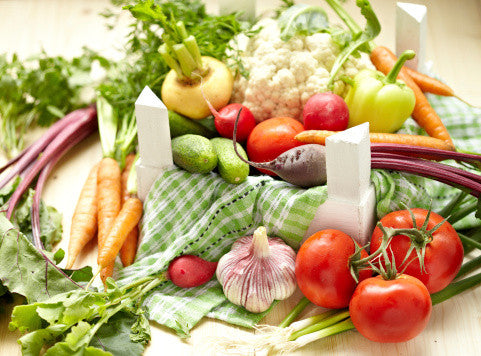
Loading..
My Store
Hours of Operation
Find your nearest store
Results
Loading...

Certified organic produce is the best choice we can make, for an abundance of reasons. It’s good for the environment, creates healthy soils, lowers our toxic burden, and provides the micronutrients the body requires.
One of the first things people think of when they hear the word ‘organic’ is free of pesticides, and they would be correct. No pesticides or other agricultural chemicals are used. This is an important point because these chemicals are not natural substances, do not belong in our bodies, and are not easy for our detox systems to eliminate. Rather, they accumulate within us, so that our toxic burden becomes heavier and more complex year by year. And it’s not just bad news for us, but for our environment, too. The Environmental Working Group is an organization of independent scientists whose mandate it is to sound the alarm on environmental dangers. They maintain a list of the most contaminated fruits and vegetables, updating it from time to time to inform the public of the dangers of pesticides, herbicides, and other agricultural chemicals that can end up in your produce and on your table.
They list the twelve most contaminated fruits and vegetables, and nickname it the ‘dirty dozen’. Commonly on that list are apples. Imagine: the simple apple, the symbol of health, the fruit grown widely here in Canada… being a danger? Celery, potatoes, green beans, spinach, and strawberries are usually on that list, too. (“Hey”, you say. “You’re talking about my regular shopping list here!”) More recently, that list has become twelve plus two more, as other contaminated items, such as kale, collards, and summer squash, make the list (the list you don’t want to be on). The dirty dozen might now aptly be called the ‘filthy fourteen’.
DIRTY DOZEN LIST (as of May 2016)
Strawberries
Apples
Nectarines
Peaches
Celery
Grapes
Cherries
Spinach
Tomatoes
Bell Peppers
Cherry Tomatoes
Cucumbes
But here is the good news: if you were to buy only these twelve items as certified organic instead of conventionally grown, then you would reduce your pesticide intake by as much as 80%. That means that all the other produce items, those not on the hit list, would add far fewer chemicals to your plate than those twelve alone. So, my advice is simple: for those items on the dirty dozen list, buy organic or don’t buy them at all.
Eighty percent fewer chemicals on your plate means a happier, healthier body and a less risky future. And the best part? Organic produce shines with wonderful flavour. So go ahead, enjoy!
{"one"=>"Select 2 or 3 items to compare", "other"=>"{{ count }} of 3 items selected"}
Leave a comment